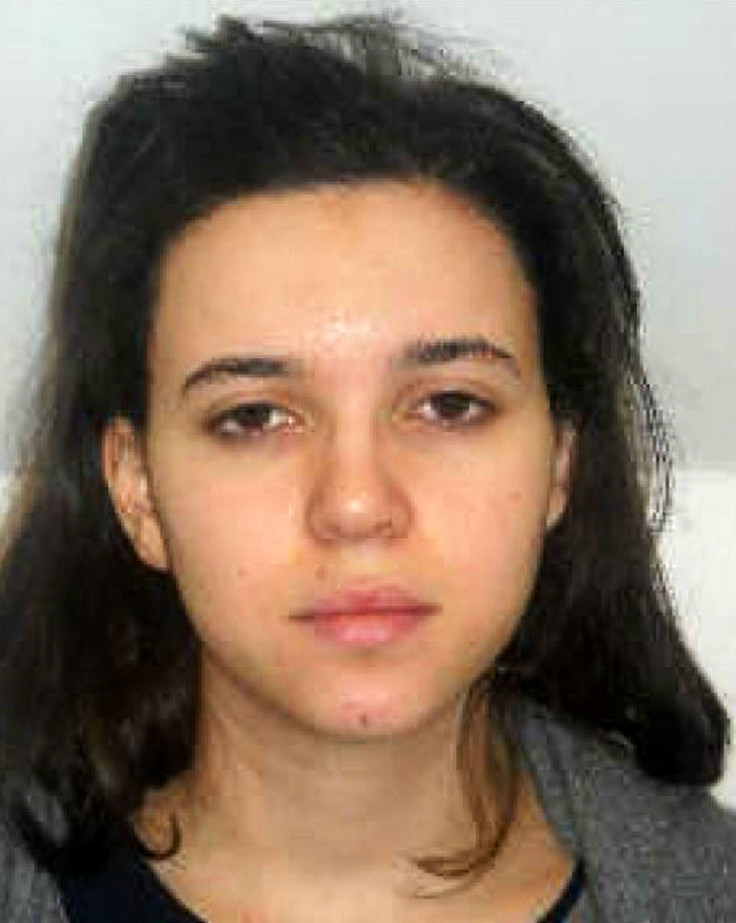How Hayat Boumeddiene Entered Syria And Is Avoiding Detection

One of the people implicated in the attacks last week in Paris has crossed into Syria via Istanbul, Turkey’s foreign minister said Monday. The suspect, Hayat Boumeddiene, 26, escaped Thursday and an international manhunt is underway. But if Boumeddiene reached Syria, she has options for avoiding detection since the largely unmonitored country has open pathways to Iraq, Jordan, Lebanon and Turkey, which would make it difficult for authorities to find her.
Mevlut Cavusoglu, the foreign minister, said Boumeddiene crossed into Syria Thursday, the same day that her partner, Amedy Coulibaly, is suspected of killing a policewoman outside Paris. That attack was the second in Paris in two days. On Friday, Coulibaly was killed after he took hostages at a kosher supermarket. French Prime Minister Manuel Valls told France's BFMTV that "the hunt will go on," but it was not clear whether Valls was referring to Boumeddiene or another suspect.
"We understand this thanks to telephone recordings," Cavusoglu told Anadolu Agency. "We provided [French authorities] with the information as soon as we got it, without them even asking." But access to Boumeddiene's cell phone most likely fell off after she entered Syria.
If inside Syria, Boumeddiene is most likely residing in Islamist strongholds, which makes tapping into her communications difficult. The al-Nusra Front, the al Qaeda offshoot in Syria, is located predominantly in the north on the outskirts of Aleppo. The Islamic State group, also known as ISIS or ISIL, also has a presence in the north, but its headquarters in the country is in the eastern town of Raqqa. Both Aleppo and Raqqa have been ravaged by fighting and communication infrastructure has broken down. Cell phone communication is minimal and Internet access is patchy.
Turkish authorities said Monday that Boumeddiene flew from Madrid to Turkey Jan. 2. She stayed at a Istanbul hotel and crossed into Syria Jan. 8, NBC News reported. She arrived in Istanbul at the Sabiha Gokcen airport in the Asian side of the city.
There are multiple ways Boumeddiene could have reached Syria via Istanbul. The most likely scenario is similar to how other Islamist recruits have passed through Turkey to Syria previously. Foreign fighters looking to join Islamist groups in Syria cross into the country much like journalists, aid workers and moderate rebels have done for more than three years.
Boumeddiene could have driven to the eastern part of the country by car or bus and met with people she knew or had connected with over the Internet in either Antakya or Gaziantep -- two of the largest towns on the border of Syria and where hundreds of thousands of refugees are housed. From there, she could have crossed into Syria through one of the checkpoints controlled by rebels in the north or through unmarked entryways.
There are two official entryways to Syria from Turkey. The Bab al-Salam and Bab al-Hawa border crossings in southeastern Turkey see the largest flow of refugees and aid workers.
If Boumeddiene passed through the Bab al-Salam crossing, which is controlled by the Free Syrian Army, the largest opposition rebel faction, it could have been with relative ease. There are no passport scanners or high-tech devices to detect fake papers. The only system the rebels have is jotting down names of those deemed "dangerous," which are communicated to them by others passing through the terminal.
The Bab al-Hawa border crossing is controlled by the al-Nusra Front. Boumeddiene could have entered Syria without detection if she chose that crossing.
There is a third option: crossing into Syria illegally, through a part of the border with no official checkpoint. If this was the case, Boumeddiene would have had to hire a smuggler.
Once would-be ISIS fighters or others have crossed into Syria, they are most likely driven to an ISIS or other Islamist stronghold. What happens when a fighter or supporter enters the war zone is less known.
If Boumeddiene decides to stay in Syria, she most likely has bought a new SIM card for her phone and is communicating on multiple lines. The U.S. and its coalition allies make flights over Syria to gather information about ISIS, and there is a chance they could also gain intel about Boumeddiene's location.
But even if Boumeddiene is in Syria, there is a good chance she will travel again, perhaps to Iraq, where part of the border is controlled by ISIS. If she entered any country bordering Syria, it would be up to the security forces in that country to identify her. But with most of the bordering countries already working overtime to fend off ISIS, most of their forces do not have the means to even begin the search.
© Copyright IBTimes 2025. All rights reserved.





















